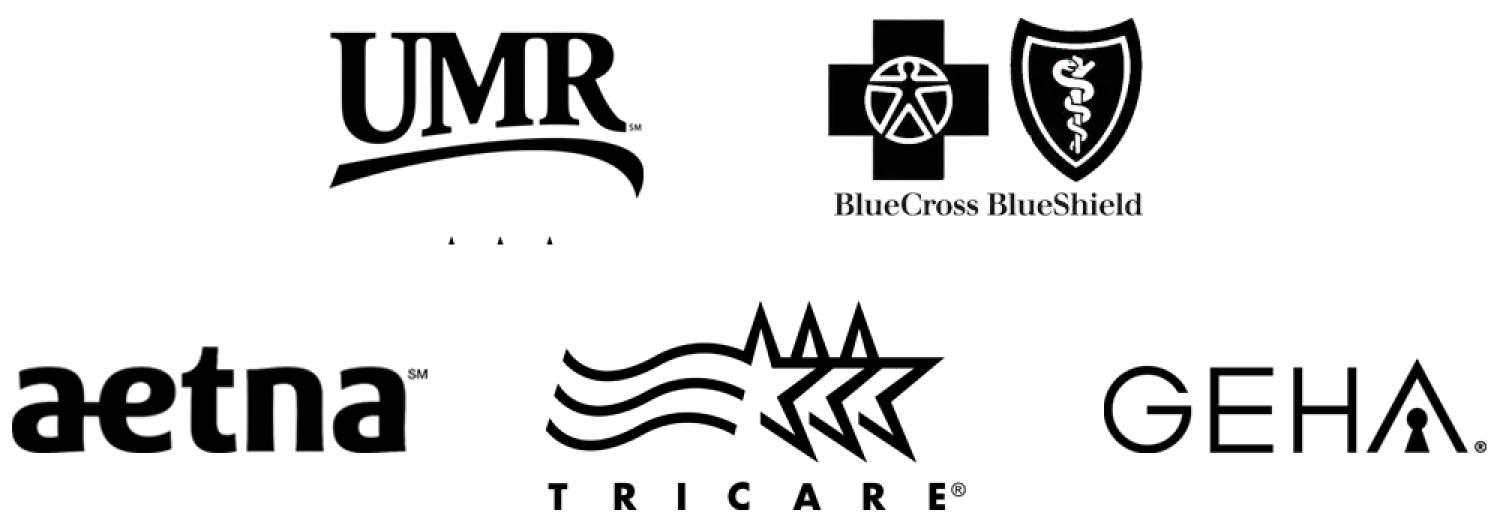Cornerstone
Understanding GEHA Drug Treatment Coverage
Learn about using your GEHA insurance policy to cover alcohol and drug treatment
Alcohol and Drug Treatment Coverage with GEHA
If you or a loved one is a current or former federal employee, military retiree, or family member struggling with drug or alcohol addiction, GEHA (Government Employees Health Association, Inc.) insurance may provide the necessary coverage to support your recovery journey.
In this guide, we’ll walk you through the key aspects of GEHA’s alcohol and drug treatment coverage, including the types of plans available, in-network coverage, the claims approval process, deductibles, and options for those facing financial hardship.
By familiarizing yourself with these details, you’ll be better equipped to make informed decisions about your treatment and take the necessary steps toward healing and sobriety.
Jump to the following sections
View our addiction treatment locations
Addictions we treat at Cornerstone
geha drug treatment coverage
In-Network
Out-of-Network
When considering drug treatment, opting for an in-network facility with your GEHA insurance can offer significant advantages. In-network providers contract with GEHA to provide services at a set price, which typically means lower out-of-pocket expenses.1 This can make treatment more accessible and affordable. However, it’s important to note that your choice of treatment centers may be more limited when staying in-network. If you have a specific facility in mind, checking whether they are in-network is crucial to avoid unexpected costs.
You may still have options if your preferred drug treatment center is out-of-network with GEHA. Choosing an out-of-network facility can give you more flexibility regarding location and treatment approach. However, it’s essential to be aware of the potential drawbacks. Out-of-network facilities may not have a contract with GEHA, which means you could be responsible for a more significant portion of the treatment costs or, in some cases, the total rehab cost. Before deciding, it’s wise to contact the facility and ask about payment plan arrangements, financial aid, discounts, or sliding scale fees to help manage the expense.
Information about GEHA Plan Types
Elevate
The budget health insurance plan offers essential coverage with the lowest premiums and minimal copays, emphasizing a healthy lifestyle. It includes wellness-promoting features like chiropractic care, acupuncture, and comprehensive mental health services. Subscribers can earn up to $500 in wellness rewards annually and receive an annual health and well-being perk valued at $125, adding exceptional value to the plan.2
GEHA Standard
The fundamental health insurance plan is designed for families, offering reliable, low-deductible coverage, particularly for routine healthcare. Key features for 2024 include new infertility coverage and a $0 copay for one primary care and two urgent care visits annually for children under 18, reducing financial stress. It also provides 100% maternity coverage, ideal for expectant parents. Additionally, while PPO plans may have higher premiums than HMOs, they offer a broader range of provider options for drug treatment.
High Option
The dependable health insurance plan is designed for individuals seeking extensive coverage. With a premium of $306.26 biweekly, it offers low copays for doctor visits and comprehensive prescription coverage. Key benefits include a $1,000 reimbursement for Medicare Part B premiums and waived coinsurance and copays for Medicare Parts A & B enrollees, making it an ideal choice for those with significant healthcare needs who require robust financial protections.
High Deductible Health Plan (HDHP)
HDHP plans offer lower monthly premiums and higher deductibles, targeting those prioritizing savings. The plan features surprisingly low deductibles and modest premiums, enhanced by a GEHA contribution of $1,000 for individuals or $2,000 for families to offset costs. It includes triple tax advantages through a Health Savings Account (HSA), maximizing financial benefits. Additionally, the plan provides unlimited telehealth visits via MDLIVE for general and mental health, with full reimbursement after the deductible is met, ensuring comprehensive and accessible coverage.3
Elevate Plus
The standard health insurance plan is designed for proactive individuals who prefer to use in-network services. Priced at $232.73 every two weeks, it includes low copays for traditional and non-traditional care, such as chiropractic services and acupuncture. The plan has a low deductible, making it financially accessible. Members can also earn rewards through the Rally® digital health platform to boost their engagement with their health. Further, it provides comprehensive mental health benefits, including telehealth services via MDLIVE, ensuring flexible and convenient access to mental health support.
Understanding Policy Terminology
Deductible
Co-Insurance
Out-of-Pocket Max
The deductible is critical to understand regarding your GEHA insurance policy, especially when seeking drug treatment. The deductible is the amount you must pay out of pocket for covered services before your insurance begins to pay.4
For example, if your plan has a $1,000 deductible, you must pay the first $1,000 of your drug treatment costs before GEHA covers some expenses. It’s essential to factor in your deductible when budgeting for addiction treatment, as it can significantly impact your upfront costs.
Co-insurance is another important term to familiarize yourself with when navigating your GEHA policy for drug treatment. Co-insurance refers to the percentage of covered healthcare costs you’ll pay after meeting your deductible.
For instance, if your plan has an 80/20 co-insurance, GEHA will cover 80% of your drug treatment costs after you’ve met your deductible, while you’ll be responsible for the remaining 20%. Understanding your co-insurance can help you better estimate your out-of-pocket expenses for addiction treatment.
The out-of-pocket max is a crucial safeguard in your policy that can provide peace of mind when seeking drug treatment. This term refers to the maximum amount you’ll have to pay for covered services in a given plan year.
Once you’ve reached your out-of-pocket max, your insurance will cover 100% of your eligible drug treatment costs for the remainder of the plan year. Knowing your out-of-pocket max can help you plan for the most you’ll need to spend on addiction treatment, giving you a clearer financial picture as you focus on your recovery journey.
Verification
Submission
Adjudication
Payment
Appeal
Before beginning drug treatment, the first step is to verify your GEHA insurance coverage. The treatment center you choose will contact GEHA to confirm your active policy and determine the specifics of your coverage. During this process, the treatment center will also identify any out-of-pocket costs you may be responsible for, such as deductibles or co-insurance. This verification step is crucial, ensuring you have the necessary coverage and helps you understand any financial obligations upfront.
Once your coverage is verified and you begin drug treatment, the treatment center will typically handle the claims submission process on your behalf. The facility’s billing department will gather all necessary documentation, including itemized bills and medical records, and submit the claim to GEHA for processing. Having the treatment center manage the claim submission allows you to focus on your recovery without the added stress of navigating insurance paperwork.
After GEHA receives the claim from your treatment center, they will review the information to determine if the services provided are covered under your policy. This process is called adjudication. GEHA will assess medical necessity, provider network status, and your specific plan benefits. Based on this assessment, they will decide whether to approve or deny the claim and, if approved, the amount they will pay the treatment center.
If your claim is approved during adjudication, GEHA will issue payment to the treatment center according to your plan’s coverage. The treatment center will then bill you for any remaining out-of-pocket costs, such as deductibles or co-insurance. It’s important to note that the amount you owe may vary depending on your specific plan and the services provided.
If your insurance claim is denied, there’s no need to panic. Treatment centers have experience handling denials and will likely file an appeal on your behalf. Their billing department will work diligently to gather additional information and make a strong case for why the services should be covered. It’s important to remember that treatment centers strive to provide only services that are likely to be approved, minimizing the risk of denial. However, if a denial does occur, you can trust that the treatment center will do everything in its power to overturn the decision and ensure you receive the care you need.
File a Hardship With GEHA
If you’re struggling to pay your deductible for drug treatment, filing a hardship with GEHA may provide some relief. Most insurance companies offer hardship provisions for members who are experiencing financial difficulties. To apply, you’ll need to contact them through a drug and alcohol treatment center or directly and provide documentation of your financial situation. They may waive or reduce your deductible if approved, making accessing the care you need more affordable. Remember that hardship applications are reviewed case-by-case, and approval is not guaranteed.
Assistance Programs & Payment Plans
Many drug treatment centers understand that paying deductibles can be a significant financial burden. To help alleviate this stress, some facilities offer assistance programs or payment plans. These programs may allow you to spread your deductible payments over time, making getting the treatment you need more manageable. Some centers may also have scholarships or grants to help cover a portion of your deductible. When researching treatment centers, don’t hesitate to ask about these options and see if you qualify for financial assistance.
Community & Charitable Resources
In some cases, community resources and charitable organizations can help you cover your deductible for drug treatment. These organizations recognize the importance of accessing quality care and want to support individuals on their path to recovery. Some local churches, non-profit groups, or addiction support organizations may have funds set aside to assist with treatment costs. It’s worth reaching out to these groups in your community to see if they can offer any financial help or point you toward other resources.
FAQs About Using GEHA Benefits
to Pay for Alcohol and Drug Treatment
Does GEHA cover drug and alcohol rehab?
Yes, GEHA insurance plans cover substance abuse treatment, including drug and alcohol rehab.
The Affordable Care Act (ACA) mandates that most health plans in the United States, including GEHA plans, must cover at least a portion of the cost of addiction treatment.
Consulting your plan’s Summary of Benefits and Coverage (SBC) is crucial for obtaining precise information about what your policy covers.
Our team can assist in this process through our insurance verification service.
Typically, GEHA insurance may encompass treatments such as:
- Detoxification: Medical detox assists in safely managing withdrawal from substances with medical oversight.
- Residential Treatment: Offers a live-in structured setting for comprehensive care, including therapy and medical supervision.
- Partial Hospitalization Programs (PHP): PHPs provide intensive care for several hours daily, permitting patients to spend evenings at home.
- Intensive Outpatient Programs (IOP): IOPs deliver outpatient care with more intensity than standard programs, often involving treatment for several hours across multiple days weekly.
- Outpatient Programs: These programs involve therapy and counseling sessions for a few hours weekly, enabling ongoing daily life activities alongside treatment.
- Therapy Sessions: Coverage often extends to various therapy formats, including individual, group, and family sessions, targeting addiction’s psychological and emotional facets.
- Aftercare and Recovery Support Services: Some GEHA plans may include aftercare services such as recovery coaching, offering continued connection and support post-treatment.
How much does GEHA cover for rehab?
The amount of rehab coverage varies depending on your specific GEHA plan.
Factors such as your deductible, co-insurance, and out-of-pocket maximum will impact how much you’ll need to pay out of pocket.
It’s best to contact GEHA directly or verify your coverage and understand your financial responsibilities.
To access detailed benefits, please complete our insurance verification form.
Once we have your policy information, our team can explain it to you.
What types of addiction treatment does GEHA cover?
GEHA provides two insurance plans, each covering addiction and substance abuse treatment.
Eligibility for treatment is based on specific criteria, and it’s important to identify the particular type of rehabilitation needed.
Covered addictions under GEHA insurance include:
*Cornerstone offers treatment for these and other substance abuse issues.
Coverage for Dual-Diagnosis or Co-occurring Disorders Under GEHA
Mental health challenges often accompany addiction.
The link between deteriorating mental health and substance abuse is significant, as poor mental health may drive some to seek relief through substances, or chronic substance use may alter brain chemistry, leading to mental health disorders.
Recognizing substance abuse disorder as a mental health condition, GEHA covers a wide array of behavioral therapies under its health insurance plans.
Individuals seeking mental health support can access it both within and outside of rehabilitation settings.
While GEHA supports numerous therapeutic approaches, it’s vital to ensure the available programs match your specific needs and treatment goals.
This is essential for holistic recovery and mental well-being.
What if my claims are denied?
If GEHA denies your rehab claim, don’t lose hope.
Our treatment center’s billing department will likely file an appeal on your behalf.
They will work to gather additional information and make a strong case for why the services should be covered.
Our treatment center is experienced in navigating the appeals process and will do its best to ensure you receive the care you need!
Sources
CLINICALLY REVIEWED

Lionel Estrada, LISAC
CLINICAL DIRECTOR
Lionel, our Clinical Director is a Licensed Independent Substance Abuse Counselor (LISAC) with over 4 years at Cornerstone, specializes in addiction and mental health. Trained in EMDR therapy, he employs a trauma-informed, empathetic approach to address the underlying causes of these issues.
- Read our Editorial Policy
Still have questions about treatment?
Our admissions specialists are here to explain the process, answer any questions you may have, and ensure you’re getting the help you need to live a healthy life free from addiction.























